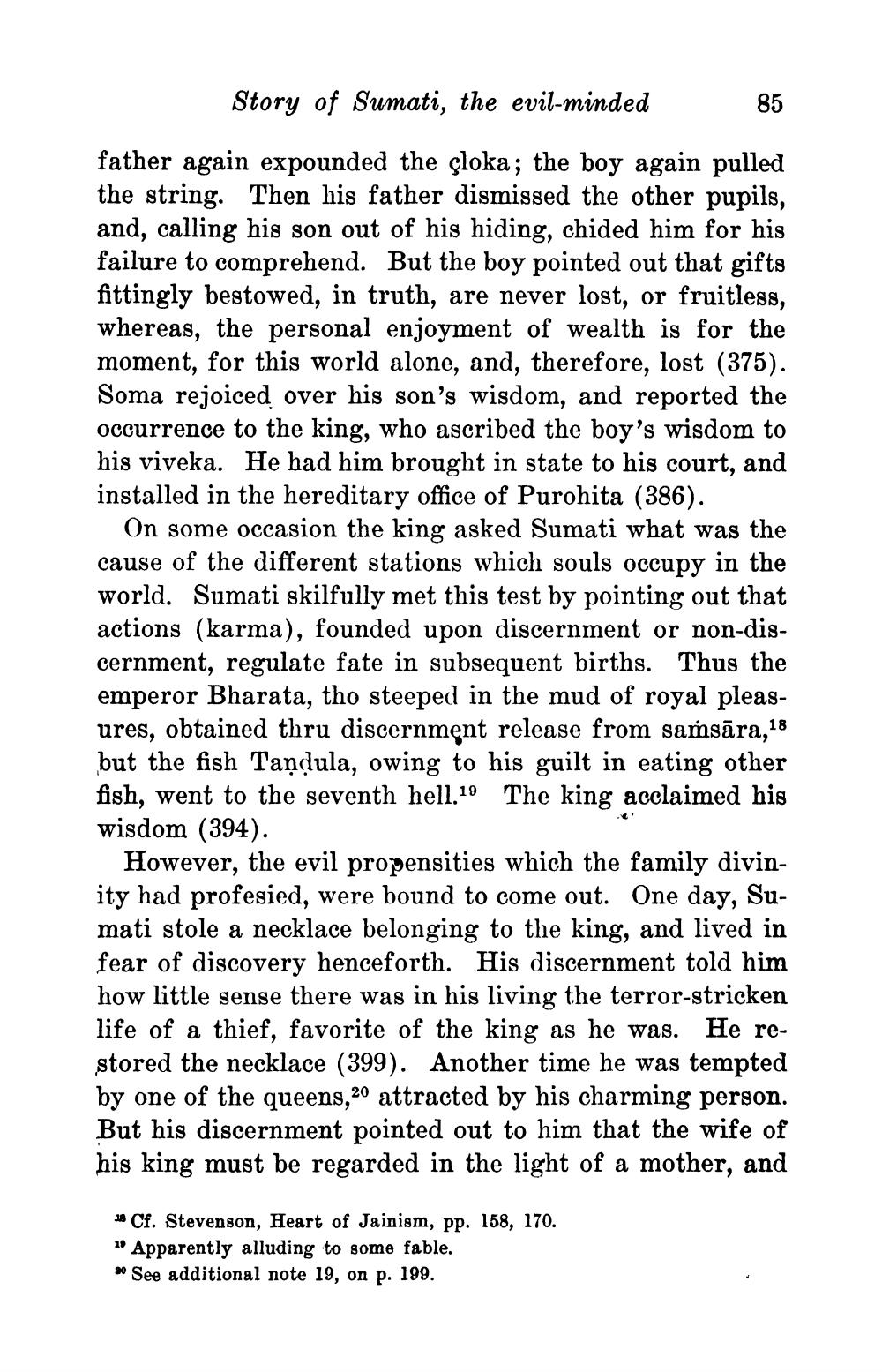________________
Story of Sumati, the evil-minded
father again expounded the çloka; the boy again pulled the string. Then his father dismissed the other pupils, and, calling his son out of his hiding, chided him for his failure to comprehend. But the boy pointed out that gifts fittingly bestowed, in truth, are never lost, or fruitless, whereas, the personal enjoyment of wealth is for the moment, for this world alone, and, therefore, lost (375). Soma rejoiced over his son's wisdom, and reported the occurrence to the king, who ascribed the boy's wisdom to his viveka. He had him brought in state to his court, and installed in the hereditary office of Purohita (386).
On some occasion the king asked Sumati what was the cause of the different stations which souls occupy in the world. Sumati skilfully met this test by pointing out that actions (karma), founded upon discernment or non-discernment, regulate fate in subsequent births. Thus the emperor Bharata, tho steeped in the mud of royal pleasures, obtained thru discernment release from saṁsāra,18 but the fish Tandula, owing to his guilt in eating other fish, went to the seventh hell.19 The king acclaimed his wisdom (394).
85
However, the evil propensities which the family divinity had profesied, were bound to come out. One day, Sumati stole a necklace belonging to the king, and lived in fear of discovery henceforth. His discernment told him how little sense there was in his living the terror-stricken life of a thief, favorite of the king as he was. He restored the necklace (399). Another time he was tempted by one of the queens,20 attracted by his charming person. But his discernment pointed out to him that the wife of his king must be regarded in the light of a mother, and
18 Cf. Stevenson, Heart of Jainism, pp. 158, 170.
"Apparently alluding to some fable.
20 See additional note 19, on p. 199.




